Debbie JacksonBBC Scotland News

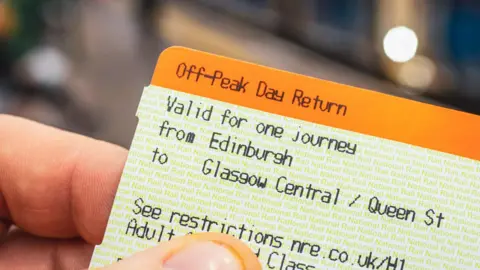 Getty Images
Getty Images
From 1 September, there will be no more peak fares on ScotRail trains
Peak rail fares have been scrapped on ScotRail trains, meaning passengers will no longer pay higher prices for travelling during busy weekday rush hours.
Until now, ScotRail passengers paid different fares at different times of day. The removal of the higher fares means significant savings for customers using services by the Scottish government-owned operator.
A rail ticket from Edinburgh to Glasgow will be almost 50% cheaper, with trips between Perth and Dundee a third less than previously.
The aim is to get more commuters out of cars and onto trains. Fares on routes that do not currently have peak time prices will be unchanged.
Peak ScotRail fares used to cover tickets bought for travel before 09:15 on weekdays and certain services between 16:42 and 18:30.
A pilot scheme scrapping peak-time fares, a policy championed by the Scottish Greens, was introduced in 2023 but ended in September 2024 after ministers said the costs of the subsidy could not be justified.
However, in his programme for government speech in May, First Minister John Swinney announced that peak fares would again be scrapped.
He told MSPs: "Last year, in the face of severe budget pressures, we took the difficult decision to end the peak fares pilot on our railways.
"But now, given the work we have done to get Scotland's finances in a stronger position, and hearing also the calls from commuters, from climate activists and from the business community.
"A decision that will put more money in people's pockets and mean less CO2 is pumped into our skies."
ScotRail ticketing will also be more straightforward and flexible under the new system, the firm has said.
How is scrapping peak fares being paid for?

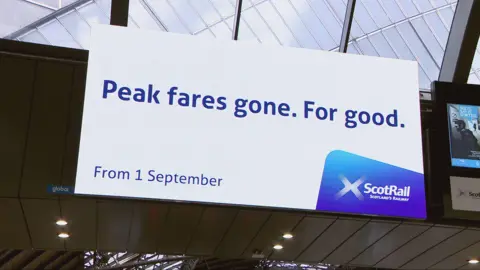
ScotRail has launched a marketing campaign to promote the cheaper fares
ScotRail has been owned and run by the Scottish government since 2022.
In October 2023 the rail firm started a year-long trial of scrapping peak fares with the aim of persuading more people to swap car journeys for rail travel.
Last year, Scottish ministers announced the trial had "limited success" and would not be extended.
An evaluation of the first nine months of the trial found passenger levels increased by a maximum of about 6.8%.
This represented around four million extra rail journeys, of which two million are journeys that would previously have been made by private car.
However, the scheme required a 10% rise to be self-financing.
Scotland's Transport Secretary Fiona Hyslop also said at the time that the pilot "primarily benefited existing train passengers and those with medium to higher incomes".
The evaluation found the estimated cost of the scheme was "in the annual range of £25m to £30m per annum (in 2024 prices) with the possibility of being as large as £40m".
If the new scheme does not become self-financing through an increase in passenger numbers, the costs will be met from the ScotRail budget.
This is made up of revenue from passenger fares and the £1.6bn the Scottish government puts into rail services every year.

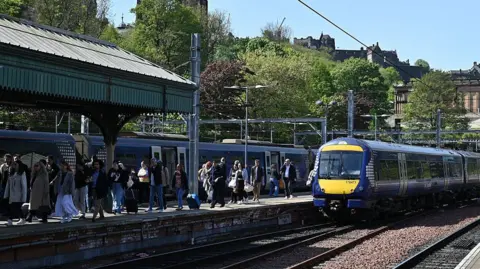 Getty Images
Getty Images
ScotRail ticketing will be more simple and flexible under the new system
Joanne Maguire, managing director at ScotRail told BBC Scotland News: "We are really excited at the opportunity to get more customers out of their cars and onto the railway.
"If you are travelling from Edinburgh to Glasgow you will see a saving of about 50%.
"From Inverkeithing to Edinburgh, you will save 40% and between Inverness and Elgin it is 35% - so it's great news for our passengers."
Ms Maguire said the trial period had seen an increase in passenger numbers and that ScotRail had enjoyed a successful summer of moving customers around to numerous big leisure events.
She added that the goal now was to grow the commuter passenger base.



 Movie
Movie 2 months ago
193
2 months ago
193 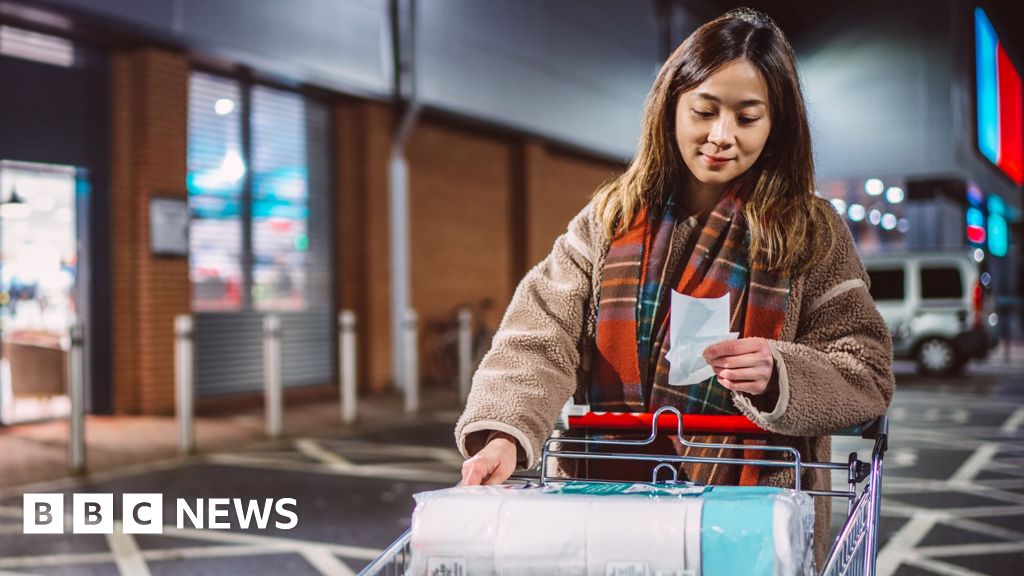

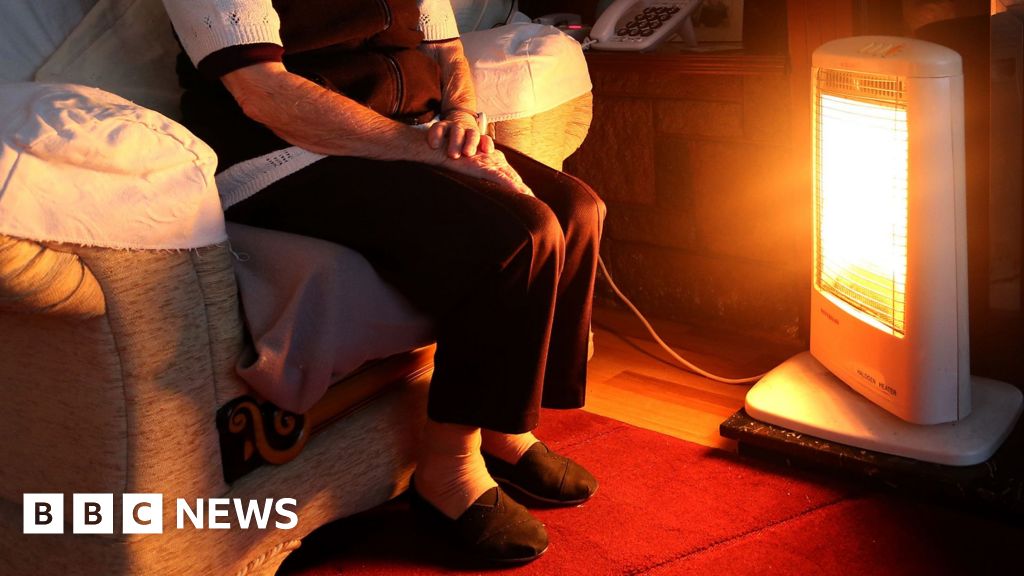



![Presidents Day Weekend Car Sales [2021 Edition] Presidents Day Weekend Car Sales [2021 Edition]](https://www.findthebestcarprice.com/wp-content/uploads/Presidents-Day-Weekend-car-sales.jpg)




 English (United States)
English (United States)